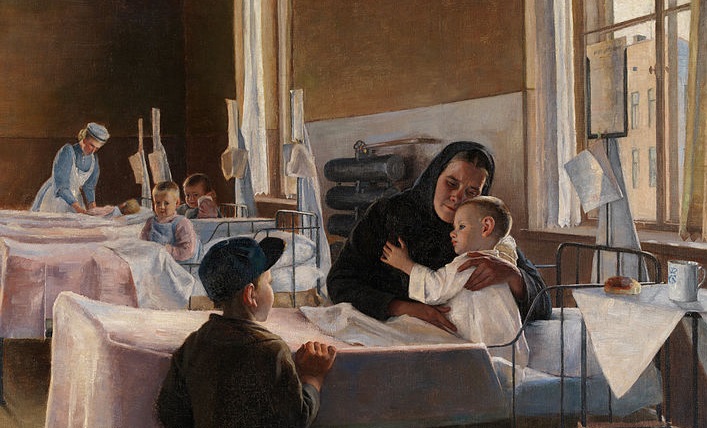Slovak government is celebrating. A lawsuit between the state and private health insurers that has been with us for two decades now, is finally over. What does it mean for Slovak citizens?
Slovaks can choose out of three health insurers. The dominant one is the state health insurer VsZP. Once it held 2/3 of the market, after years of bleeding clients it still holds over 50%. The state insurer has been riddle with various financial scandals and repeatedly ended up with serious financial troubles.
However, most of Slovak governments considered the state insurer a key element in their healthcare policies and even tried to steer Slovakia towards unitary system with one state-owned insurer. They have not succeeded so far, partly due to consistently bad financial and marketing results of VsZP.
In the mid-2000s, the state had to inject capital into VsZP – and private insurers fought back. They sued Slovak republic for illegal state aid.
After years of trials, both in Slovakia and on European level, the Court of Justice in Luxembourg came with final verdict. Slovak health care insurance system is not a commercial system, but a social security network and thus state aid rules are not applied.
The enemy has been defeated and accepted the defeat. The Ministry of Health was right – 16 years after the reform, it has not been able to create a competitive market environment with all its perks for the insured. And I, one of the insured, am thinking about what it is that I should be celebrating.
Let’s start by clarifying that the decision of the Court of Justice, especially in such a specific area as the Competition law, is not the word of God. Competition law in the EU is so ,,elaborate” that although Italian state air company Alitalia has seen profit once in its entire existence, it still operates. A miracle, I guess, not state aid. Or is air transport market not a competitive environment?
But back to the health insurance. Surely, there must be some level of competition since last year 240 000 insured Slovaks swapped their health insurance company. But INESS has been repeatedly raising awareness regarding the fact that health insurance companies have very limited space to compete. Is this now a reason to celebrate?
The reform of the 2002-2006 minister of health, Rudolf Zajac, was based on the idea of competing health insurance companies. This competitive process was aimed at shaping the healthcare environment as such – to generate prices, financial flows, networks of providers, to serve as a guardian of economic management of respective entities, but first and foremost, it was supposed to empower to the insured – the patients.
This has been achieved only to a limited extent. Thanks to competition, the insured experiences a more pro-client approach, there is some competition in payment mechanisms and contracting.
Unfortunately, further development of market competition in health insurance hits regulatory obstacles such as missing definition of patient entitlement, minimum hospital network, price regulations, domination of the state insurance company or the endless cycle of subsidizing state hospitals.
The decision of the Court can be perceived as “ water for the mill” that processes the dream of Slovak politicians about a system with single health insurance company. The system that will be firmly in their hands, where there would be no possibility to lose 150 000 insured in a year to a more attractive private insurer.
However, let’s not forget about the fact that the 2004 reform did not appear out of the blue. It was not a copy of the famous Dutch model of Healthcare organization, since at that time it was in the root stages itself. The reform happened, because the state-dominated, centrally controlled Slovak healthcare system was been on the verge of collapse at the turn of the millennium.
In 2001, VsZP owed 6 billion Slovak crowns to pharmacies and 1 billion Slovak crowns to hospitals and was not able to pay it. The literal dismantling of the entire healthcare system by creditors was prevented only by the ban on executions of healthcare institutions of July 2001.
The mentioned lawsuit was about whether the state had the right to pour public money into VsZP. Instead celebrating the legality of this “pouring”, would it not be better to finally focus on creating the competitive market?
Translated by Diana Kralova
Continue exploring:
Starting New Life (in Slovakia) with Coronavirus
Life After Lockdown: What Will the World Look Like After Coronavirus Pandemic?



